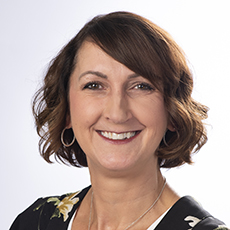On Sept. 23 and 24, several hundred teachers will gather in Edmonton to attend the 27th annual Beginning Teachers’ Conference. Many of them will show up bright eyed. Some will show up tired. But they will all show up with enthusiasm and a readiness to learn because this is the career they have chosen and the path they want to take. The participants, teachers in their first two years of teaching, will attend a variety of sessions led by fellow teachers—specialist council members and Association staff—focused on curricular content, pedagogy and what it means to be a member of the profession.
I’ve been thinking about what I would like all participants to leave knowing and, although the list is long and detailed, I’ve distilled it down to three key messages. The ABCs of teaching to remember as you begin your career and as you move through it in the years and decades ahead.
Ask questions. My dad often said, “You are never further behind by asking questions.” So, ask. Ask when you are unclear of a process, policy or procedure. Ask when you don’t know how to handle a situation, interaction or problem. Ask when you need a fresh perspective or new way of doing something.
And most importantly, ask when you need help. If you ask, and you get the clarity, advice and support you need, you are moving ahead. If you don’t get what you seek, you are where you started, and then you need to ask again (either in another way or a different person).
You would want your students to ask if they were unclear, uncertain or needed help, so give yourself the same grace and ask the questions you have.
Build relationships. Positive interactions between individuals create a sense of belonging, build trust, and lead to improved connections and community in classrooms and schools. When I think back to my favourite teaching memories, the moments that stand out the most are those shared with students and colleagues for whom there was reciprocal understanding and respect (and which were often filled with good conversation, stories and laughter).
The simplest, most effective way to begin building relationships is to learn people’s names and use them as often as you can. This shows respect and makes an immediate connection. By knowing someone’s name, pronouncing it properly and using it appropriately, you show them that they are seen, that you recognize them as an individual and value them. This applies not only to all your students, but to all the staff who work in your building.
Teachers who have positive relationships with their students tend to have the best classroom management, as these teachers are better able to demonstrate clarity in their communication, instructions and expectations and consistency in their actions, processes and responses. Clarity and consistency build trust and create spaces where people feel safe and are more willing to ask questions, take risks and be open.
Care for yourself. When you are at your best, you give your best. If you think of your teaching enthusiasm and ability like a battery, you know that your energy is constantly being drawn down by interactions, responsibilities and the act of teaching itself. Teacher well-being is not solely the responsibility of each individual teacher, and there are many other factors that contribute to and influence teacher well-being, but there are self-care strategies that can be used to help recharge.
Much like the batteries on our phones (which need charging numerous times throughout a week) we need to ensure that we make time every day to recharge and not just wait until the weekend to do so. How individuals recharge varies but may include activities like movement, laughter, music, mindfulness, play or sleep (to name a few).
The ideas here are just the first three of an alphabet list I could fill with advice for those beginning their careers as teachers. These ideas would all have the same foundational belief: each teacher has power. Through their attitudes and actions, teachers have the power to influence their own well-being and the lives of students.
We have power. Let’s use it.

Associate Co-ordinator, ATA Professional Development